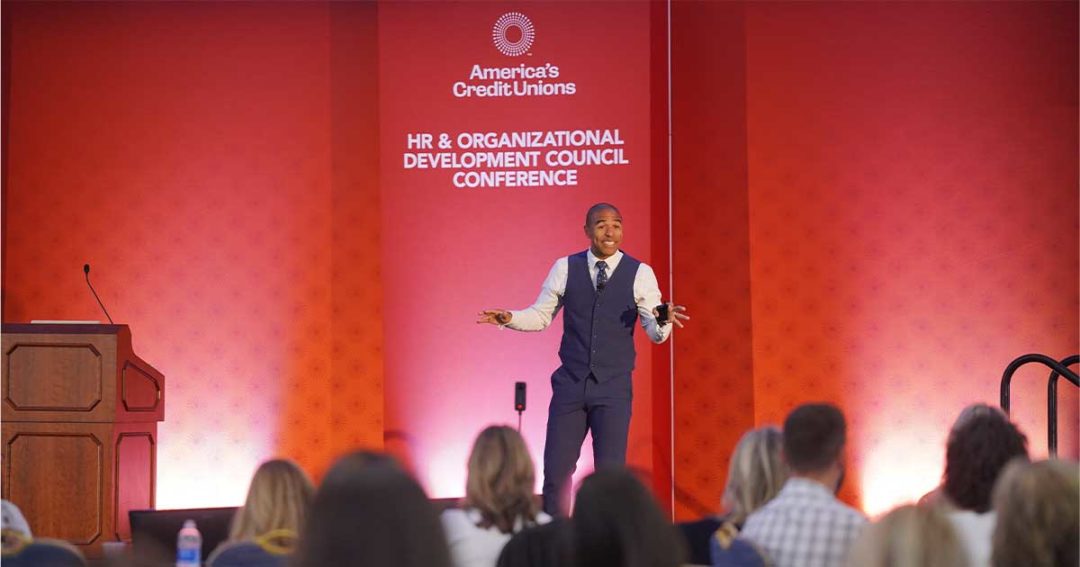
Be ‘radically curious’ to improve communication
Burnout declines when communication and connection improve, author says.
Every organization relies on people: their ideas, actions, relationships and, most important, communication.
However, our communication is getting worse, says Eric Bailey, president at Bailey Strategic Innovation Group and author of “The Cure for Stupidity: Using Brain Science to Explain Irrational Behavior.”
“We have an epidemic of loneliness,” says Bailey, who addressed America’s Credit Unions’ 2024 HR & Organizational Development Council Conference Sunday in St. Pete Beach, Fla. He notes that burnout and division have increased due to the influx of technology, social media, and people’s desire to be right.
“If we’re always surrounded by people who know what we know, we stop learning and growing,” he says. “That’s where we’re heading. We’ve normalized division in our workplace. It’s our job as HR and organizational development professionals to fix it.”
Changing how we communicate starts with people recognizing they don’t know everything, trying to understand the position of the person they are debating, and realizing they don’t have to “win” every conversation.
“People love to separate everything into us versus them, good versus bad, and right versus wrong,” Bailey says, adding that having a conversation “winner” inherently means there’s a “loser.”
“I’m willing to bet the conversation isn’t better because you have a loser in it,” he says. “The team isn’t better and the organization isn’t better. And yet, we try to win.”
When someone takes a competitive attitude into conversation—whether intended or not—their “opponent” perceives their comments as an attack and gets defensive. That leads the original person to get more defensive, and communication craters.
“What you say or do matters less than what they hear or feel. They’re going to base their reactions and behaviors on what they heard,” Bailey says. “Communication happens when the message has been received, not when it’s been sent.”
That creates division and isolation, which can lead to workplace burnout. To combat burnout, Bailey advises leaders to increase connections within their organization.
To do so, he suggests approaching conversations with three goals:
- Learn something new.
- Understand the person in front of you.
- Strengthen the relationship.
“Ask yourself two questions: What do I truly want and what do they truly want? And if you can’t figure it out, just ask them,” Bailey says. “Try to understand the human across from you before expecting them to understand you. Almost any debate can be solved by finding mutual purpose. When you lower your power, they lower your defenses. That’s when you can really start connecting and engaging.
“Be radically curious and actively seek out things you don’t know.”